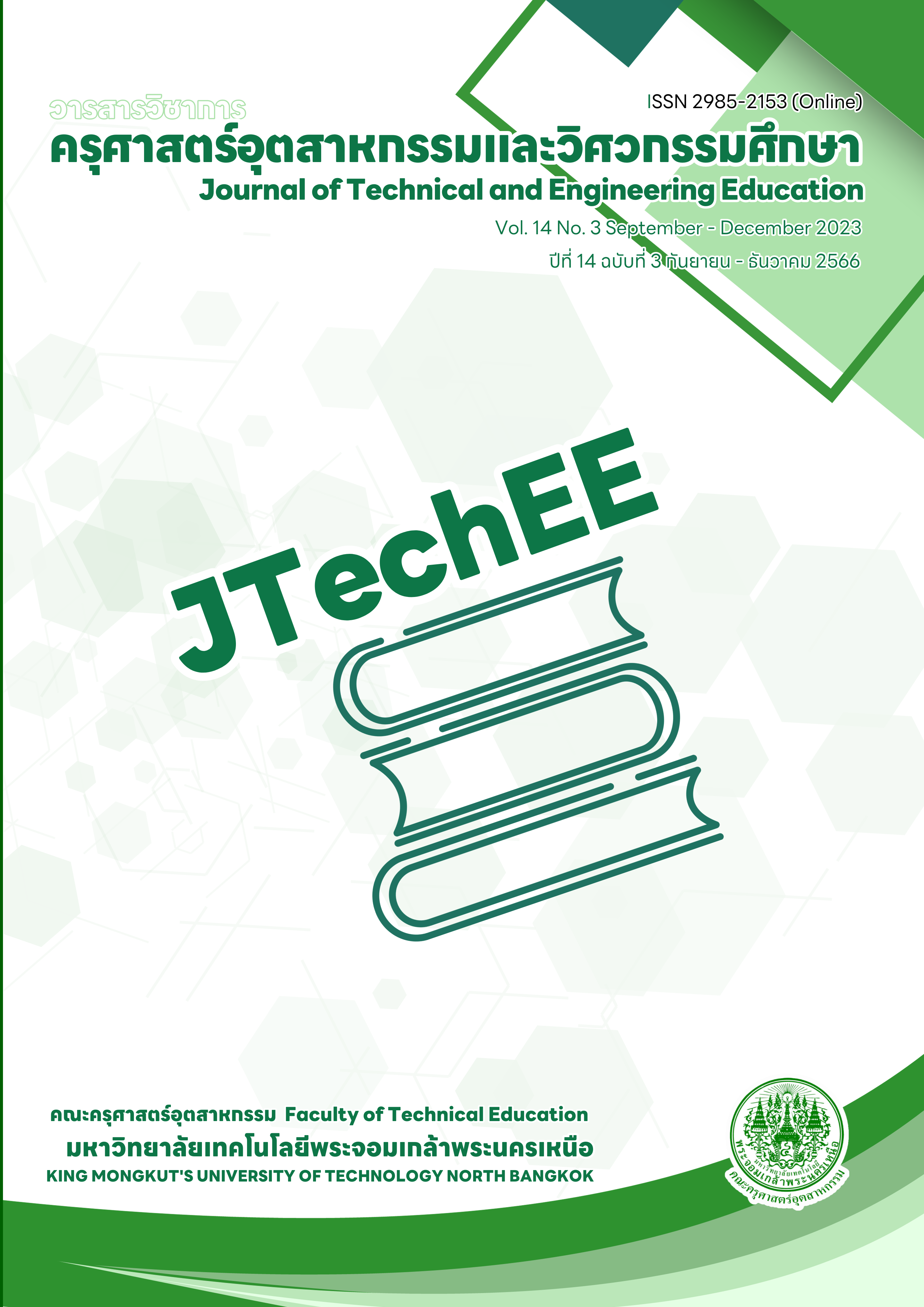Learning Management Through Simulation-based for Promoting Industrial Occupation Skills
Main Article Content
Abstract
This research presents the development of the RISDA simulation-based learning model for industrial electronics education. The research methodology begins with a survey of needs from stakeholders based on the requirements of the graduate's competencies, then develops a simulation-based learning and teaching model called the RISDA model. The RISDA model comprises five stages; Recall, Information, Simulation, Discussion, and Assessment. The research tools were constructed, such as teacher manuals of industrial electronics, learning activity plans, simulation-based teaching media, and objective tests. Then, they were used to implement a sample of 20 undergraduate students program in industrial technology at Burapha University. The results showed that 1) the developed instructional package was effective with 76.42/76.08 according to the standard criteria 75/75, 2) learners who had learned using the RISDA model had their satisfaction at a high level (the mean was 4.48). The developed RISDA model can promote learners' competencies in line with 21st-century learning skills and appropriately accommodate workplace needs.
Article Details
copyright in this website and the material on this website (including without limitation the text, computer code, artwork, photographs, images, audio material, video material and audio-visual material on this website) is owned by Journal and its licensors.
References
A. W. Setiawan. (2020). Development of Research-based Learning in Introduction to Biomedical Engineering Course for Undergraduate Electrical Engineering Students. 2020 10th Electrical Power, Electronics, Communications, Controls and Informatics Seminar (EECCIS), (pp. pp. 273-277). Malang Indonesia.
Eastern Economic Corridon (EEC). (2023, July 18). business-opportunities. Retrieved from https://www.eeco.or.th/en/business-opportunities
Guo, J., & Weimin, W. (2018). Policy Analysis on the Xi Jinping’s New Era and China’s Strategy. Journal of Humanities and Social Sciences, 7(2), 198-222. [in Thai]
Ruangsiri, K., & Akatimagool, S. (2022). Development Of P-PIADA Based Disciplinary Integrated teaching Model On Communication Network Analysis For Electrical Engineering Education. Journal of Education Naresuan University, 24(3), 97-102. [in Thai]
Kanyawit, K., & Somsak, A. (2019). Development of Instructional Activity Package based on STEM Education Process for High-frequency Transmission Engineering Education. Technical Education Journal : King Mongkut’s University of Technology North Bangkok, 10(2), 92-100. [in Thai]
Ruben, A., & Ajay, B. (2021). Analysis-Design-Justification (ADJ): A Framework to Develop Problem-Solving Skills. IEEE Global Engineering Education Conference (EDUCON), (pp. 366-372). 21–23 April 2021, Vienna, Austria.
Noulnoppadol, S., Intarawiset, N., & Akatimagool, S. (2022). Learning and Teaching Activity Management using Research-Based Learning Model for Telecommunication Engineering Education. Technical Education Journal King Mongkut’s University of Technology North Bangkok, 13(1) 51-63. [in Thai]
Sorat, S. (2017). The Development of Cooperative Learning Activities with LT Technique to Enhance Learning Achievement of DailySubstances in Science Subject for Prathom VI Students. Veridian E-Journal,Silpakorn University, 10(1), 1506-1522. [in Thai]
Stehle, S. M., & Peters-Burton, E. E. (2019). Developing student 21st Century skills in selected exemplary inclusive STEM high schools. International Journal of STEM Education.
Thitsana, K. (2010). Teaching Science: Knowledge for efficient learning process management (13th edition). Bangkok: The Publisher of Chulalongkorn University. [in Thai]
Yanan, Z., & Lei, W. (2022). A case study of student development across project-based learning units in middle school chemistry. Disciplinary and Interdisciplinary Science Education Research.


